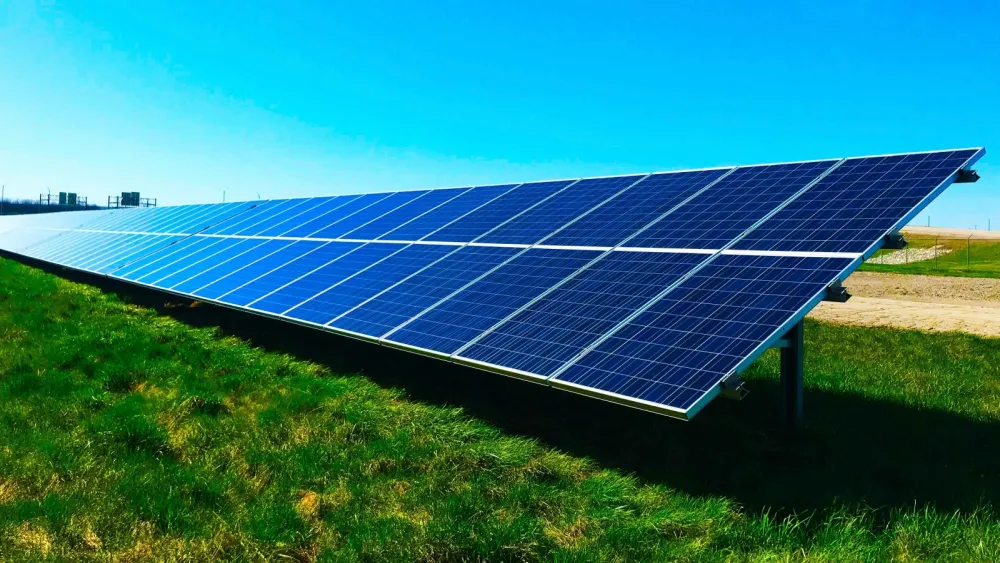Reality check: Are Indian utilities prepared for smart metering?
By Suman GhoraiSmart metering and Smart grid in electricity sector recently have attracted much attention to improve the performance of power utilities. Many countries in the West including USA, Canada and within the EU are already involved in smart metering on pilot projects or in selective roll out for specific urban areas.
There is no doubt of the potential benefits of smart metering for commercial process improvements e.g. faster meter reading and revenue management, customization of customer load requirements, fulfilment of regulatory requirements for energy efficiency, customer awareness for energy uses and energy cost saving.
The drivers for the smart metering are many folds, including, reduction in meter reading and revenue realization cycle, identification of fraudulent practice and necessary correction, reduction of peak demand through systematic load reduction, better customer services, assistance in reduction in grid failure and so on.
However, there are few limitations which are preventing mass scale implementation of the smart metering. For example,
- It’s a new initiative and there are no sufficient information or data to justify the end benefit of this high cost metering
- This is very costly and time consuming process which requires significant capital expenditure
- Utilities have already spend a sizable amount for upgradation of the existing electromechanical or old static meters, therefore, reinvestment for smart metering will be difficult at the Regulator as well as utility perspective
List for justification for Smart metering and to counter the same is long, however, in the later part we will try to understand the situation in Indian distribution companies for implementation of smart meter.
According to industry reports, distribution utilities globally will spend US$ 378 Billion in Smart Grid technologies by 2030 where India is estimated to install 130 million Smart Meters by 2021. Unlike developed countries, India has not introduced Smart metering in a large scale till now, however, Ministry of Power, GoI has announced eight Smart Grid pilot projects last year which are set to be rolled out shortly.
The Power ministry is going to finalize these eight projects of worth 500 crores (US $ 9.69 million) on Smart Grid implementation, which uses combination of smart metering and various technologies to improve the efficiency and reliability power system for sustainable growth. To initiate this process, 14 Utilities, which manages the power distribution across India will be invited to submit the proposal for the eight pilot projects. The selected proposals will receive funding of around 50 to 60 crore.
The pilots will focus on addressing three key issues, 1) Reduction of aggregate technical and commercial (AT & C) losses, 2) Peak load management, and 3) Integration of renewable energy like wind and solar into the grid. The pilots are expected to be completed within 12 to 18 months. It is proposed that 50% of the total project cost will be borne by the Ministry of Power and remaining 50% by the selected utilities.
Though there are some progress in Smart metering across utilities at pilot level, however, there is a significant infrastructural development and capacity building issues which need to be addressed before planning a large scale implementation of the project. Our recent studies show that few utilities have initiated Automatic Meter Reading (AMR) through GSM and through Infra Red (IR), however, in spite of more than 50% consumers are having such smart technology most of the meters are read manually. Thus the benefits of such a huge investment are not realized.
Therefore, there is a need for quick feasibility study to understand the technical and managerial issues and need to develop a plan to address those issues before deployment of smart meters. Another significant issue is smart metering is the quality of HT and LT infrastructure.
Though there are some improvements in urban power distribution system due to implementation of APDRP/R-APDER projects, where there are substantial infrastructure developments in metering and HT/LT system through AMR & IR static metering and ABC cabling. However, utilization of benefits is yet to be realized due to:
- Lack of knowledge sharing and communication between employees
- Absence of associated infrastructure for meter data analysis and necessary action for pilferage reduction
- Insufficient regulatory focus and policy on smart metering
- Lack of system modification to enable the benefits of existing intellectual meter
- Lack of consumer awareness on Smart Grid concepts, how they will be benefited through Smart metering
Unless the above issues are addressed properly, large scale investment for smart metering will be an additional burden without realizing the benefits of revenue enhancement. The policy makers and regulators have to implement a robust incentive model framework to attract more and more private investments assuring the rate of return.
A collaborative approach through vendor partnership and an economics of scale needs to be workout before rollout of this technology. Till then the existing metering system should be strengthened for commercial loss reduction and focus should be given on metering efficiency, utilization of existing data for theft & pilferage protection, accurate energy accounting & auditing and revisiting the accountability of the personnel / feeder managers responsible for improvement of the metering operational efficiency.




















 Advertise
Advertise







